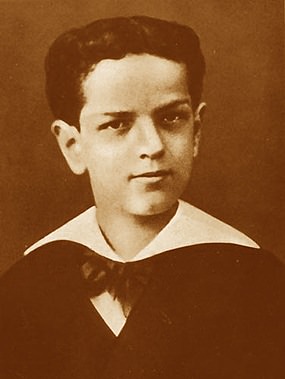
There can be no other season that brings such a mood of joyful expectation as the spring. One of the things I miss about the Old Country is the sudden appearance of daffodils in the fields, as if to herald the end of the ghastly grey and rainy winter. The daffodils were the harbingers of spring. And yes, now you mention it, there’s that poem by William Wordsworth about daffodils, which in a moment of astonishing originality he entitled “Daffodils.” It’s the one that begins “I wandered, lonely as a cloud”. The poem – or at least the first line of it – was probably known by every child in the country in those days.
Anyway, where was I? You interrupted me by mentioning Wordsworth and I’ve completely lost my train of thought. I’m terribly sorry, but we’ll have to start again. You have only yourself to blame.
There can be no other season that brings such a mood of joyful expectation as the spring. It’s the season of rebirth and renewal and it’s full of expectations for the months to come. It’s not surprising that so many artists and composers have been attracted to the idea of spring. It’s been celebrated in music at least since the fifteenth century and possibly even earlier.
Delius wrote Spring Morning and On Hearing the First Cuckoo in Spring, Roussel wrote Pour une Fete de Printemps, Joachim Raff composed Ode to Spring and Karl Goldmark wrote an overture called In The Spring. There’s Schumann’s so-called Spring Symphony and the waltz Voices of Spring by Johann Strauss II.
There are dozens more of course but perhaps the most influential composition on the theme was Stravinsky’s The Rite of Spring composed for the 1913 Paris season of Sergei Diaghilev’s company, Ballets Russes. It caused a sensation at its first performance and a near-riot in the audience. I first heard the work when I was about fourteen and thought it was one of the most thrilling pieces of music ever written. In many ways, I still do. But let’s begin with something a little less famous.
Claude Debussy (1862-1918): Printemps (Suite symphonique). Orquestra Sinfônica de Minas Gerais (Brazil) cond. Charles Roussin (Duration: 16:43; Video: 480p)
Compared to the brittle and grinding harmonies that characterize Stravinsky’s The Rite of Spring, Debussy’s orchestral essay on the theme seems somewhat genteel. Even so, at the time it was considered “excessively progressive” by the conservatively-minded Fine Arts Academy in Paris. By today’s standards the music is entirely approachable and immensely enjoyable.
Spring was always a source of inspiration for Debussy and this was a student work, originally sketched out for piano duet. Debussy didn’t get around to getting an orchestral version prepared until 1913 but it’s glorious music and bears hallmarks of the composer’s later style with rich post-Wagnerian harmonies and of course, masterful orchestration.
Debussy described the music as representing “the slow, laborious birth of beings and things in nature, and then their blossoming outward and upward, and finally a burst of joy at being reborn to new life.” The music is in two contrasting movements and the second one, which starts at 09:44, is full of attractive, infectious melodies.
Li Huanzhi (1919-2000): Spring Festival Overture. National Orchestre de France cond. Hu Rong-yan (Duration: 04:33; Video: 240p)
The year after Debussy died in Paris, on the other side of the world Li Huanzhi was born in Hong Kong. He was to become one of China’s premier composers of the twentieth century who also wrote text books on music and composition. He studied music at the National Music College in Shanghai, and later went to Yan’an where he studied at the Lu Xun Arts College. After the outbreak of the war of resistance against the Japanese he composed among other things, propaganda songs against Japan.
Li Huanzhi wrote over four hundred compositions and was Chairman of the China Musicians’ Association for many years. During his life he composed a large amount of music with uplifting titles like March of the Foundation of a New Democratic Country, March of the Youth of New China and the breathtakingly prosaic Socialism is Good.
One of his best-known works is the orchestral suite Spring Festival, but over the years the first movement has become detached from the rest of the suite and become known as the Spring Festival Overture. Li Huanzhi’s notion of spring is a rather more boisterous affair than Debussy’s reflecting the high spirits of Chinese New Year and while it’s written in a kind of plink-plonk modern-Chinese style there are some catchy tunes. There’s a lovely lyrical middle section too with pleasing woodwind solos.
Incidentally, there’s also a delightful performance on YouTube by the China Central Chinese Orchestra conducted by Chen Xieyang. It’s all jolly stuff and fascinating to hear the music played on traditional Chinese instruments.
 |
 |
 |





